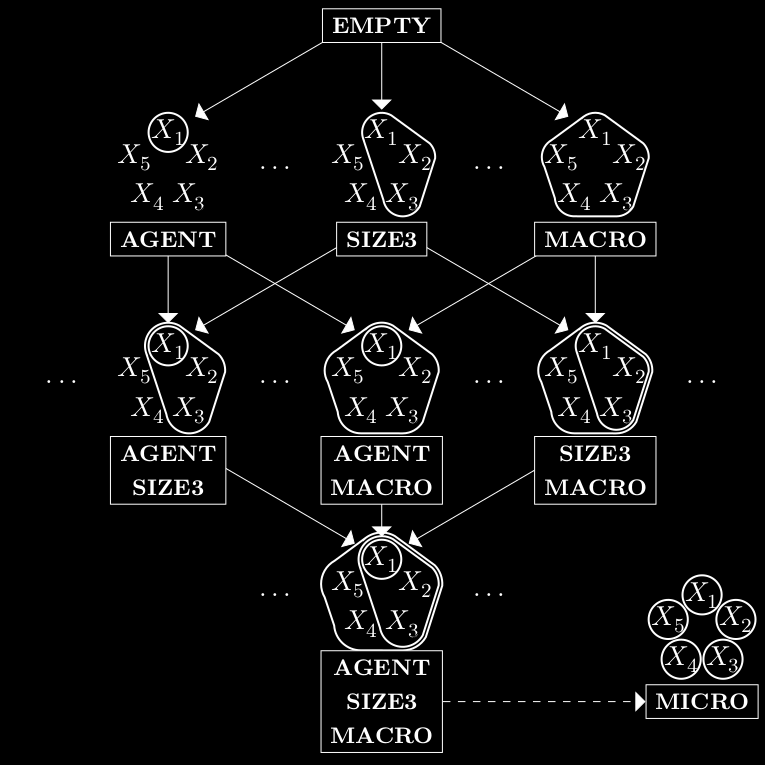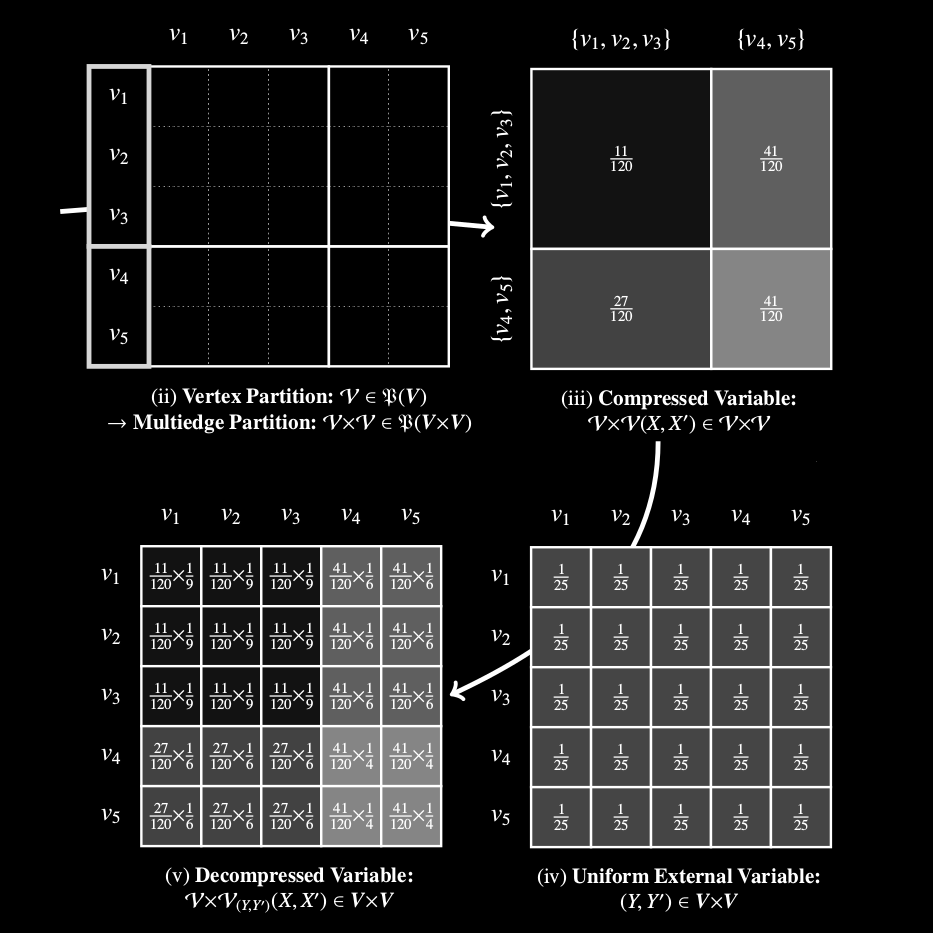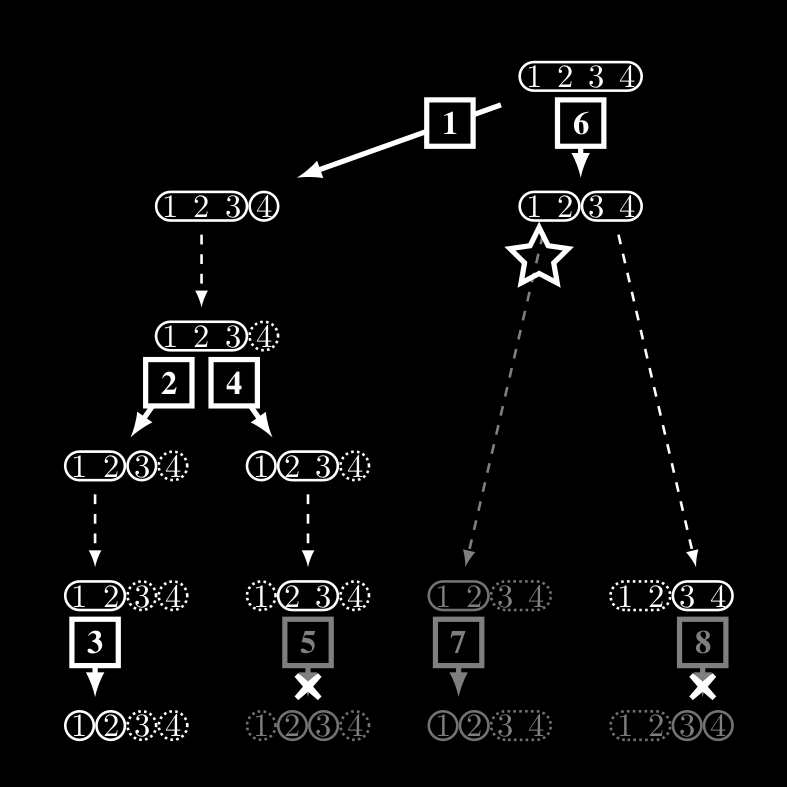Théorie de l’information
The Information Bottleneck Method for Optimal Prediction of Multilevel Agent-based Systems
Robin Lamarche-Perrin, Sven Banisch, and Eckehard Olbrich. In Advances in Complex Systems, vol. 19, n°1 & 2, p. 1650002-1-45. World Scientific Publishing Company, Singapore, 2016.
Because the dynamics of complex systems is the result of both decisive local events and reinforced global effects, the prediction of such systems could not do without a genuine multilevel approach. This paper proposes to found such an approach on information theory. Starting from a complete microscopic description of the system dynamics, we are looking for observables of the current state that allows to efficiently predict future observables.

An Information-theoretic Framework for the Lossy Compression of Link Streams
Robin Lamarche-Perrin. Theoretical Computer Science, vol. 806, p. 90-115. Elsevier B.V., Amsterdam, 2018.
Graph compression is a data analysis technique that consists in the replacement of parts of a graph by more general structural patterns in order to reduce its description length. It notably provides interesting exploration tools for the study of real, large-scale, and complex graphs which cannot be grasped at first glance. This article proposes a framework for the compression of temporal graphs, that is for the compression of graphs that evolve with time.

Measuring Diversity in Heterogeneous Information Networks
Pedro Ramaciotti Morales, Robin Lamarche-Perrin, Raphaël Fournier-S’niehotta, Rémy Poulain, Lionel Tabourier, and Fabien Tarissan. ArXiv, 2020.
Diversity is a concept relevant to numerous domains of research varying from ecology, to information theory, and to economics, to cite a few. It is a notion that is steadily gaining attention in the information retrieval, network analysis, and artificial neural networks communities. While the use of diversity measures in network-structured data counts a growing number of applications, no clear and comprehensive description is available for the different ways in which diversities can be measured.

Optimisation combinatoire
A Generic Algorithmic Framework to Solve Special Versions of the Set Partitioning Problem
Robin Lamarche-Perrin, Yves Demazeau and Jean-Marc Vincent. Research Report 105/2014, Max-Planck-Institute for Mathematics in the Sciences, Leipzig, Germany, 2014.
Given a set of individuals, a collection of admissible subsets, and a cost associated to each of these subsets, the Set Partitioning Problem (SPP) consists in selecting admissible subsets to build a partition of the individuals that minimizes the total cost. This combinatorial optimization problem has been used to model dozens of problems arising in specific domains of Artificial Intelligence and Operational Research, such as coalition structures generation, community detection, multilevel data analysis, workload balancing, image processing, and database optimization.
